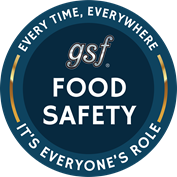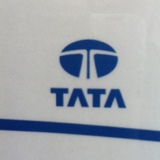Information
-
Meeting evaluation WEEKLY PLANNING
-
Conducted on
-
Prepared by Réginald d'Ursel
-
Location
FRAMEWORK
Action list
Participants
-
Local Manager / Operations Manager
-
CSD Manager
-
Local BU rep. LFB
-
Local BU rep. LFA
-
Local BU rep. PC
-
Local BU rep. PIC
-
Local BU rep. WET END
-
Local BU rep. PIELCOLOR
-
Local BU rep. PURCHASING
Inputs
-
Action list
-
Complaints
-
Long term demand plan
-
Long Term purchasing plan
-
Stock Analysis Report
-
Weekly Stock Report
-
SMOG
-
Order entry
-
Points of input from BU (2days before)
-
Production volumes
-
Check the KPI'S
-
Check off due corrective actions from BU and from past meeting
-
BU reporting
-
CSD - Customer intake - order quality
-
Purchasing
-
Warehouse usage
-
Stock reporting (RED, SMOG, Uniques, RAT)
-
Resume of new corrective actions
-
Capacity issues for coming month
EVALUATION
1. ORGANISATION
1.1 Meeting
-
Did the meeting start and end according to the agreed times?
-
All participants where on time.
-
Framework is accepted.
-
The meeting is held according to the agreed frequency. (Use action list to verify dates)
1.2 Agenda
-
The agenda is used to guide the sequence of the topics.
-
All agenda topics were discussed in their timeframe.
-
The chairman previously defined a set of goals to achieve.
-
A communication was sent to all participants previously to clarify the goal of this meeting.
1.3 Chairman
-
All variances are being discussed.
-
Discussions are controlled. Only the necessary information is being discussed.
-
The chairman clearly expresses his expectations to all participants and controls structure and discipline.
-
The chairman considers the remarks of the participants concerning the topics that are discussed.
-
All participants received their information on time and were prepared.
-
There is a central action and decision log on the table.
1.4 Participants
-
All participants were equally involved in the meeting.
-
Participants express their expectations regarding behaviour and effectiveness to each other.
-
All participants were prepared and contributed effectively to the meeting with their knowledge.
-
All participants have a pro-active attitude towards problem solving.
-
In case of absence of any participant, a replacement is designated to attend.
2. Effectiveness
PlanningParticipants
-
Participants have a good knowledge about the activities of their department.
-
Solutions are found for deviations from planning.
-
Solutions are noted on an action log.
-
Variances are considered when planning future activities.
Do
-
Discussions are lead by facts.
-
Past experiences are used to find solutions for new obstacles.
-
All participants have recorded their action points.
-
Action points are summerized at the end of each discussion.
Check
-
Participants verify the progress of the current activities.
-
Urgencies are identified and acted upon.
-
The action list of the previous meeting is reviewed. Deviations are rescheduled without "re-treating" the problem.
-
KPI's are evaluated.
-
KPI's are revolving in a positive trend.
Act
-
Actions are summerized and scheduled by participants.
-
Less than 10% of the actions on the action list need rescheduling.
-
The action list is part a larger action plan that leads to continuous improvement.
-
END












